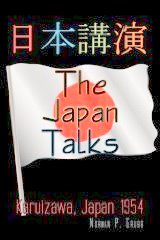While the world still marvels at Japanese Technology, Japanese Fashion and Japanese Food, a quiet revolution is taking place in the small
Known as `J-Gospel`,a new musical phenomenon is growing and spreading through beginning to exert influence similar to J-Pop and other forms of Japanese music that have taken over Asia by storm.
According to Kaori Yamamoto, one of the leading voices in the genre, `J-Gospel is in a sense a going back to our own roots. Many people do not know that `gospel music` has been sung in
In particular in the 17th century the music of `Kirishtan` was Japanese, indigenous and spread through the country.` Following World War II, American Gospel spread throughout Japan and in the early 90s there was boom in Black Gospel Music which resulted in many choirs and even a television program on the main Government Channel.
Partly in reaction to that and partly in a going back to their roots in indigenous forms of the genre, Yamamoto and others are seeing the birth of a completely Japanese version.
Ranging from `Ryukyu Gospel` with the haunting tones of Japan`s southernmost Island, Okinawa to `Enka Gospel` written in the traditional Japanese musical style, J-Gospel has spawned a weekly Radio Program, soon moving to TV, Live concerts throughout the country and its own label.
From February 27 to March 2nd, in Shinjuku in central
Entitled `Gospel Legend` the five day event in one of Japan`s premier venues will be featuring in addition to Kaori Yamamoto, iJ-Gospel bands such as Hide-C, Kiki, Yoshi Blessed, Route of Soul and more.
Event producer Yoshi Ikarashi says `Starting from one of Japan`s key venues we are planning over a five day period to introduce J-Gospel to Japan and the world. Following the introduction in
Japan`s newest `invention`, is seen by some experts as a possibility to finally rival the last time a Japanese song hit the pop charts of the world - in 1963 when the `Sukiyaki Song` sung by Kyu Sakamoto hit number one on the US Charts.
Can it happen again?
Yamamoto, Ikarashi and the other `J-Gospel` artists and their fans are convinced it will, beginning on April 27th in the heart of downtown
















